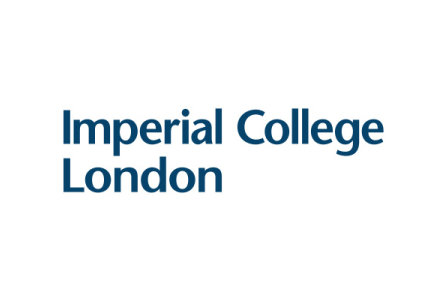Imperial College London: Imperial pioneer wins UNESCO-Equatorial Guinea International Prize
An Imperial Regius Professor of Engineering has won the UNESCO-Equatorial Guinea International Prize for Research in the Life Sciences.
Regius Professor Christofer Toumazou was recognised by a distinguished international jury for his innovations in transformative biomedical engineering, diagnostic innovations, bio-inspired technology and personalised medicine that have revolutionised healthcare and pushed the boundaries of biomedical engineering. He is the first UK recipient of the prize.
The vision that drives my research is that, one day, healthcare will be truly personalised, and that health professionals everywhere will look not just at your medical history, but also your medical future.
Regius Professor Chris Toumazou
Department of Electrical and Electronic Engineering
His work culminated in the DnaNudge technology that is now providing world-first consumer genetics services and lab-free, rapid point-of-care diagnostics for COVID-19 and other viruses.
Professor Toumazou, who is Regius Professor of Engineering, Chair in Biomedical Circuit Design, Director of the Centre for Bio-Inspired Technology, and Founder and Chief Scientist for the Institute of Biomedical Engineering at Imperial, is a pioneer of near-patient diagnostic systems that are improving quality of life for people across the world. His innovations are enabling personalised healthcare, as well as early detection and active prevention of diseases including sepsis, heart disease, obesity and diabetes.
Commenting on the prize, Professor Toumazou, from the Department of Electrical and Electronic Engineering, said: “I am deeply honoured and humbled to be named the first ever UK winner of the UNESCO-Equatorial Guinea International Prize for Research in the Life Sciences. My life’s work Professor Chris Toumazouhas been dedicated to democratising healthcare and bringing the economies of scale of the semiconductor industry to diagnostics and treatment, particularly in the areas of early detection, diagnostics and prevention.
“The vision that drives my research is that, one day, healthcare will be truly personalised, and that health professionals everywhere will look not just at your medical history, but also your medical future. I extend my heartfelt thanks to the UNESCO-Equatorial Guinea International Prize jury for this incredible honour, which I will devote to continuing to develop technology solutions to our biggest global health challenges – from lifestyle-related disease epidemics to viral pandemics.”
Professor Toumazou developed a complete Lab-in-a-Cartridge technology that delivers consumer genetics services to identify genetic risk factors and ‘nudge’ everyday shopping behaviour to improve public health. The DnaNudge service analyses and maps users’ genetic profile to key nutrition-related health traits such as obesity, diabetes, hypertension and cholesterol, enabling customers to be guided by their DNA plus lifestyle towards healthier eating.
I extend my heartfelt thanks to the UNESCO-Equatorial Guinea International Prize jury for this incredible honour, which I will devote to continuing to develop technology solutions to our biggest global health challenges – from lifestyle-related disease epidemics to viral pandemics.
Regius Professor Chris Toumazou
Department of Electrical and Electronic Engineering
This platform has been successfully adapted into a transformative 90-minute, lab-free COVID-19 test (‘CovidNudge’), now in use in UK hospitals and healthcare settings worldwide. CovidNudge also offers the ability to test for influenza viruses and respiratory syncytial virus (RSV) on the same testing cartridge.
The UNESCO-Equatorial Guinea International Prize rewards significant efforts of individuals or institutions through scientific research towards improving the quality of human life, and is awarded annually to a maximum of three laureates. The Prize is funded by the Republic of Equatorial Guinea, with a monetary award of USD 350,000 divided equally among laureates to help further their research.
The Prize was established by UNESCO’s Executive Board in 2012 to support the achievement 2030 Agenda for Sustainable Development as well as UNESCO’s global priorities to encourage research, enhance collaboration amongst researchers and reinforce networks of centres of excellence in the life sciences.
Professor Toumazou’s career has long been distinguished for his ground-breaking research in bringing silicon technology to the field of medical devices for early detection, diagnosis and therapy. His co-invention of semiconductor-based genomics has transformed how clinicians detect and treat conditions – from cancer to bacterial and viral illness.
Through his company DNA Electronics, this technology is poised to deliver fast and accurate diagnosis of blood stream infections and antimicrobial resistance in near patient settings, enabling early, targeted intervention crucial to preventing death from sepsis.
Professor Chris Toumazou holds the 2014 European Patent Office European Inventor Award, the Royal Society Gabor Medal and the IET Faraday Medal for his pioneering work in the field of microchips for healthcare and the co-invention of semiconductor-based genomics.
The honour was conferred upon Professor Toumazou at a prize-giving ceremony at UNESCO’s headquarters in Paris on 14 March 2022. The award was presented by the President of the Republic of Equatorial Guinea H. E. Obiang Nguema Mbasogo and Audrey Azoulay, the Director General of UNESCO.

